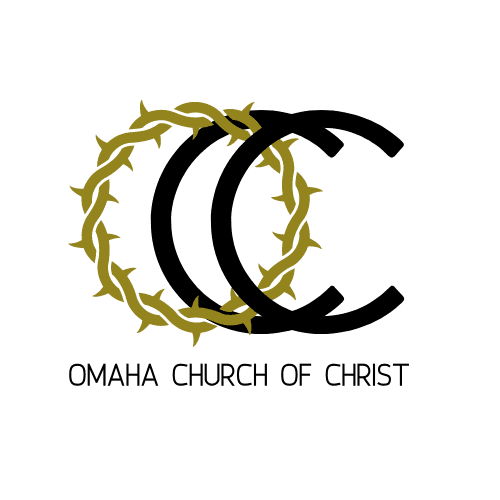Spiritual Formation, could we miss the whole point?
Hopefully, you have picked up on the fact that spiritual disciplines are a key support component of everything we are going after in our theme this year of "re-routing". The spiritual disciplines are very much a part of our objectives of sabbath, shalom and hospitality.
Spiritual Discovery embraced many aspects of the spiritual disciplines, stated or not. As we wrap up the current calendar year, we plan on embarking in the fourth quarter with small groups working on biblical meditation, a great follow up lesson book to Spiritual Discovery. Bible Meditation & Mindfulness is written by Virginia Lefler, one of the co-authors of Spiritual Discovery.
We must take care not to let the disciplines eclipse the actual reason for practicing them: to deepen our relationship to God and to create space for God’s grace to work in our lives.
Ultimately, transformation more and more into Christ is the goal of the practice of the disciplines, not the disciplines themselves. The practices are just a means to an end, not the end themselves.
The article below is entitled "Spiritual Formation, could we miss the whole point?"
I love the article for two reasons:
1-It reminds us what the point of the disciplines are, and
2-I believe it reinforces the fact that real measures of growth... making disciples... is truly only accomplished long term when disciples are transformed regularly, and more wholly, into the image of Christ... after-all, Jesus came to seek and save the lost. The more we get Christ formed in us, well, the rest just takes care of itself. As Paul would say, the love of Christ compels me.... into everything Paul did with his life.
God bless
T
SPIRITUAL FORMATION
Dallas Willard’s 3 Fears About the Spiritual Formation Movement
Could we miss the whole point?
JAMES BRYAN SMITH|AUGUST 22, 2022
As a young man, I was privileged to be an eyewitness to the rise of the Christian spiritual formation movement.
It began, in its modern form, in 1978, when Richard Foster wrote what has become the perennially standard text on the spiritual disciplines, Celebration of Discipline. Within a few years of its publication, Christians who had never heard of solitude, silence, or meditation were now practicing these disciplines.
Dallas Willard, who served as a philosophy professor at the University of Southern California for 40 years, was one of the most important pioneers in the spiritual formation movement among evangelicals and mainline Protestants. He was close friends with Richard; in fact, Dallas first taught Richard about the spiritual disciplines, which of course were nothing new but were rooted in the ancient church.
In the early days, we experienced a great deal of resistance. Some were sure our teachings on spiritual formation were dangerous and the work of the Devil. People would gather outside of our small conferences holding picket signs with messages like “New Age Heresy: Beware.” But the movement was building.
Over their long years of friendship, Richard encouraged Dallas to write about Christian formation, and Dallas eventually penned many influential books, namely The Spirit of the Disciplines; Renovation of the Heart; and his magnum opus, The Divine Conspiracy.
Over the years, many others joined in similar efforts.
In 2005, we held a Renovaré (Renew/Restore) International Conference in Denver, and over 2,500 people attended. When I walked into the auditorium, I was overwhelmed. I turned to Richard and said, “Something has changed. We have gone from picketed to popular in less than 20 years.” It was true. Something had changed. Soon more and more pastors and parishioners were reading books on formation. Other formation ministries were being established. Christian publishers created book series and imprints branded for their formation focus. Colleges and seminaries began offering graduate programs on formation.
I noticed that even pastoral titles began to change; instead of “pastor of Christian education” or even “pastor of discipleship,” there were more and more “pastor of spiritual formation” roles on church staffs. But privately, I noticed something else during those decades: Dallas was voicing serious concerns about the movement’s future.
Prophetic Fears
Over the years until Dallas passed away in 2013, I had several conversations with him about the rise of the spiritual formation movement. Dallas told me he was glad people were interested in spiritual formation and that it was a sign of a deep hunger and deep need in the church.
But he worried that the focus would be on the practice of the spiritual disciplines themselves rather than on what they were intended to do. Dallas felt this would naturally degenerate into a focus on technique—on the how and not the why of the spiritual exercises.
Dallas also feared that churches would co-opt interest in spiritual formation as a tool for church growth—and that, because it likely would not lead to numerical growth, leaders would then relegate formation to one of many departments in a church rather than viewing it as central to their mission.
Finally, he was concerned that the growing number of formation ministries would compete with each other—rather than cooperate—in order to validate their work and ensure their survival.
I’ve reflected on these concerns for nearly a decade now, and I’ve come to believe that Dallas was prophetic. Today, there is a strong emphasis on practicing the disciplines almost in isolation. Nearly every week I receive a copy of a new book on Christian formation, and almost all of them are about a particular practice, such as slowing down, solitude, fasting from technology, using the Enneagram, gratitude journaling, or creating a rule of life. They give great attention to the how of a certain method while championing its apparent benefits, but they often neglect to help readers truly understand or cultivate the deeper why.
I do frequently see churches struggle to integrate spiritual formation into congregational life. While many churches have a department of formation and discipleship, they tend to focus on isolated programs, events, or groups within their church, rather than viewing spiritual formation as an expected aspect of being a Christian for all people.
And I have seen—and directly experienced—the kind of competitive spirit among formation leaders and organizations that Dallas warned about. Only rarely have I seen the kind of cooperation Dallas felt was necessary.
In one of our last conversations together, I asked Dallas what would be at stake if his fears became reality. His answer: “A lack of transformation into Christlikeness.”
This is the heart of the issue: Christian spiritual formation must truly be about formation—about being formed into the image of Christ (2 Cor. 3:18; Gal. 4:19). In the end, the question isn’t about disciplines or programs or techniques. The question is: Are people becoming more like Christ? And that was Dallas’s deepest concern.
Fear #1: Techniques without transformation
Since Dallas is no longer with us, I recently took a “listening tour” and spoke with several of his closest colleagues and family members about what Dallas might say today regarding where the formation movement has come and where it is going. I spoke with Richard Foster; John Ortberg; Steve Porter; Keith Matthews; Dallas’s wife, Jane Willard; and his daughter, Becky Willard Heatley. The conversations were enlightening and encouraging, but not without a sense of caution and concern.
To understand Dallas’s fears, it’s helpful to understand Dallas’s model of formation, which aimed at what he called putting on “the mind of Christ.” In Dallas’s view, this meant adopting the narratives of Jesus on key issues like the character of God the Father, the nature of human person as an embodied soul, and the reality of the present kingdom of God.
Dallas taught that disciplines such as prayer, solitude, and Scripture memorization are only one part of the formation process. The second part is the work of the Holy Spirit, and the third is learning how to see life’s trials and events in light of God’s presence and power.
One of Dallas’s fears—something he essentially predicted—was that interest in the practice of the disciplines, while essential, would eclipse the other two parts. How did he know this? Because the practice of the disciplines, though challenging, naturally has an immediate sense of payoff. Measuring spiritual growth itself is difficult; knowing whether one has completed a devotional practice is not. If I spend five minutes in prayer or 15 minutes reading a devotional book, I will feel as if I have done something “spiritual.” And these actions may very well lead to a sense of connection with God. But they may also be an act of legalism, which was the failure of the Pharisees who fasted, gave alms, and prayed in order “to be seen” (Matt. 6). Legalism is an act of earning—of thinking, for instance, I fasted this week, so I am expecting a blessing from God. And if I believe that God metes out punishment and blessings based on my religious practices, I will quickly turn the disciplines into legalism.
Years ago, a woman in my church felt she had to have a daily “quiet time” (which entailed reading a selection from her daily devotional book) to get God to bless her life. Soon she began to think that if she did a longer quiet time, she would get more blessings. At one point, she was reading seven devotional books during her prayer time. I explained to her that the disciplines only do one of two things: connect us to God or help break the power of sin. When she discovered this, her approach to the disciplines was substantially changed.
Becky Willard Heatley spoke with me about her father’s concern that the disciplines would be “elevated and separated” from the rest of transformation. “He believed this would be dangerous,” she said, because the disciplines then become a form of idolatry—the means become the ends. We become more focused on the disciplines than we are on God, breaking the grip of sin, or the care of our embodied souls.
Steve Porter, a professor at Biola University who edits the Journal of Spiritual Formation and Soul Care and was close with Dallas, believes Dallas’s concern about elevating and separating the disciplines was that it would leave out the historical, scriptural, theological, and anthropological why behind the disciplines.
Despite the emphasis in many current books on spiritual disciplines, these practices are not meant for reducing stress, ordering one’s daily routine, understanding one’s personality better, having “spiritual experiences,” or gaining any number of other fringe benefits that do often result from the disciplines. All of these matters are secondary to the goal of becoming more like Christ.
We must take care not to let the disciplines eclipse the actual reason for practicing them: to deepen our relationship to God and to create space for God’s grace to work in our lives.
Fear #2: The ABC’s without the D
Another fear Dallas voiced concerned the church. He was a big proponent of the local church and believed one of its primary roles is to create disciples as Christ mandated in the Great Commission (Matt. 28:16–20). The core premise of his book The Great Omission is that many of our churches omit the very heart of the commission: to “make disciples,” which in turn means “teaching them to obey everything that I have commanded you.”
Dallas believed the emphasis in many evangelical churches was on “making Christians,” instead of making disciples. These ideas should be synonymous, but they aren’t. Dallas often remarked that today one can be a Christian (by virtue of a confession of faith) without being—or even intending to be—a disciple. In other words, one can feel confident he or she is a Christian because of an assent to a doctrine (such as “Jesus rose from the dead”) without any intention of doing what Jesus said to do (like “Bless those who curse you,” “Love your enemy,” and so on).
This phenomenon, Dallas believed, was rooted in something deeper: the metrics by which we tend to measure church success. Dallas called these common measures “the ABCs”—attendance, buildings, and cash. For example, if we see a church of 75 people who meet in an old building and have little money to pay for staff or ministries, we may assume they are, as Richard Foster often puts it, “a marginal failure on the ecclesiastical scoreboard.” Conversely, if we see a church that has 5,000 weekly attenders, a campus so large that attendees must be shuttled in golf carts, and money to fund countless ministries, we may assume this church is a massive success.
But Dallas fervently believed church “success” (if you could call it that) should be measured not by the ABCs, but by the D—discipleship. Jesus, Dallas would point out, was not interested making bigger churches but in making “bigger Christians.” In this regard, a church of 75 who are growing in Christlikeness could be far more successful than a church of 5,000 that’s not engaged in making disciples of its members.
In Dallas’s view, spiritual formation should not be relegated to a program or retreat; rather, it is essential to the corporate life of our congregations.
In churches that shortchange discipleship, members who do move into a more mature faith life will often become isolated. This was essentially the finding of a much-discussed 2007 study by Willow Creek Community Church.
Keith Matthews, a seminary professor at Azusa Pacific University who worked as closely with Dallas as anyone I know, told me, “Dallas foresaw that it would be a challenge to create communities of faith that can support real transformation. He saw how, for most people, it remained just an individual effort. Without communities, continued growth is very difficult.”
One obstacle to emphasizing church-wide spiritual formation is that it often does not lead to numerical growth. Dallas knew that if a pastor focused on this kind of discipleship in the life of a congregation, it might actually lead to a drop in attendance—what Dallas called “a holy reduction.” Discipleship and formation are slow and difficult—a challenge in a world that prefers the quick and easy.
“It is not fair to say that pastors reject spiritual formation efforts because they don’t directly grow attendance,” John Ortberg told me. “They simply neglect it because they believe it will take them away from the things that would grow their churches in attendance.”
Fear #3: Competition over cooperation
Dallas’s final concern was regarding the many spiritual formation ministries that emerged as the movement grew. On one hand, he was truly glad to see more and more people establishing retreat centers, programs, institutes, and academic and nonacademic training programs. But on the other hand, Dallas was keenly aware of a potential problem: Ministry leaders would view others as competitors, he feared, and would not cooperate with one another.
This phenomenon isn’t new. Competition has been common in the church since the time of the apostles—I am for Paul, I am for Peter, I am for Apollos(1 Cor. 1:12; 3:4). And Dallas knew this was especially true not just within but between churches.
May we be alert to the danger of giving in to a spirit of competition; may we continually and humbly invite Jesus to keep our hearts in sync with the values of the kingdom. We are truly all in this together.
James Bryan Smith is the Dallas Williard Chair of Christian Spiritual Formation at Friends University, executive director of the Apprentice Institute, and author of The Good and Beautiful God.
Past Blogs



